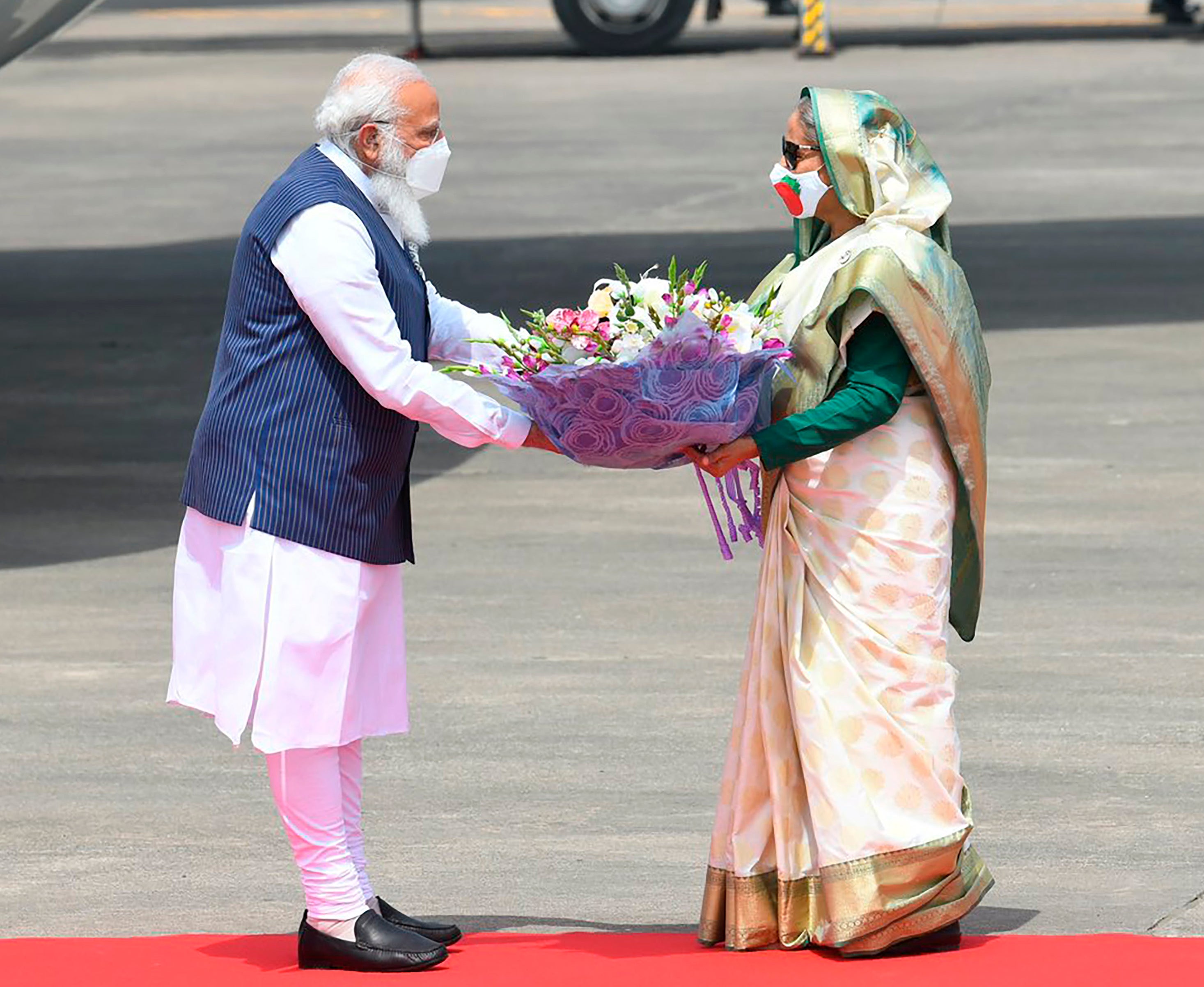India PM Modi visits Bangladesh to mark independence day
India's prime minister has arrived in Bangladesh’s capital to join celebrations marking 50 years of the country’s independence

Your support helps us to tell the story
From reproductive rights to climate change to Big Tech, The Independent is on the ground when the story is developing. Whether it's investigating the financials of Elon Musk's pro-Trump PAC or producing our latest documentary, 'The A Word', which shines a light on the American women fighting for reproductive rights, we know how important it is to parse out the facts from the messaging.
At such a critical moment in US history, we need reporters on the ground. Your donation allows us to keep sending journalists to speak to both sides of the story.
The Independent is trusted by Americans across the entire political spectrum. And unlike many other quality news outlets, we choose not to lock Americans out of our reporting and analysis with paywalls. We believe quality journalism should be available to everyone, paid for by those who can afford it.
Your support makes all the difference.Indian Prime Minister Narendra Modi arrived in Bangladesh’s capital on Friday to join celebrations marking 50 years of the country's independence, but his trip was not welcomed by all.
Modi's two-day visit, his first foreign trip since the coronavirus pandemic began last year, will include taking part in commemorations marking 100 years since the birth of independence leader Sheikh Mujibur Rahman, the father of current Prime Minister Sheikh Hasina
In recent weeks, Bangladeshi Muslims and student activists have rallied in the capital of Dhaka to denounce Modi's visit, although there were no protests so far on Friday. Critics accuse his Hindu-nationalist party of stoking religious polarization in India and discriminating against minorities, particularly Muslims.
While Modi’s trip is mainly focused on Bangladesh's celebrations, the visit also has a political agenda at home, as voting begins Saturday in several state-level elections, including West Bengal, which borders Bangladesh.
With an eye on galvanizing Hindu support in the key battleground state, Modi is set to visit a Hindu temple outside Dhaka that’s sacred to the Matua community back in West Bengal. The Matua sect’s vote is expected to determine the winner of at least seven seats in a close race for control of the state assembly.
Modi, in a tweet late Thursday ahead of his trip, said the two countries' share a vital relationship.
“Our partnership with Bangladesh is an important pillar of our Neighborhood First policy, and we are committed to further deepen and diversify it. We will continue to support Bangladesh’s remarkable development journey, under Prime Minister Sheikh Hasina’s dynamic leadership,” he said.
Both leaders are expected to sign several agreements, including one for regional connectivity, but no details have been officially released.
Hasina, a key partner for India in maintaining regional peace and stability, welcomed Modi at the Hazrat Shahjalal International Airport in Dhaka on Friday morning.
In recent weeks, demonstrators have urged Modi not to come to Bangladesh and chanted anti-India and anti-Modi slogans. Student protesters called Modi “the butcher of Gujarat." Others carried signs reading “Go Back Modi, Go Back India,” and “Go Back Killer Modi.”
Modi was chief minister in the western state of Gujarat in 2002 when Hindu-Muslim riots left more than 1,000 people dead. Allegations that authorities allowed and even encouraged the bloodshed have long followed Modi, who has repeatedly denied having any role. India’s Supreme Court has said it found no evidence to prosecute him.
The protesters also criticized Hasina for inviting Modi, saying the two countries have many unresolved disputes. The protesters accuse Modi and his Hindu-nationalist party of discriminating against Muslims, such as a controversial 2019 amendment to the citizenship law.
They've also criticized the killings of Bangladeshis by Indian border guards. India says such casualties happen when Bangladeshis are involved in cross-border smuggling and attempt to cross the border illegally.
Many Bangladeshis are also unhappy with India’s unwillingness to sign a water-sharing treaty for the Teesta River, one of many common rivers.